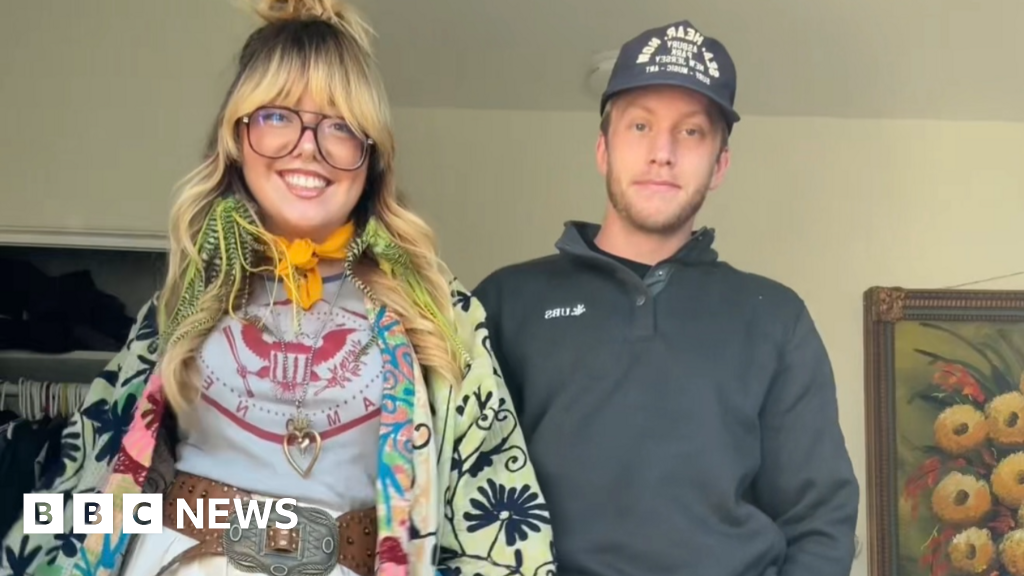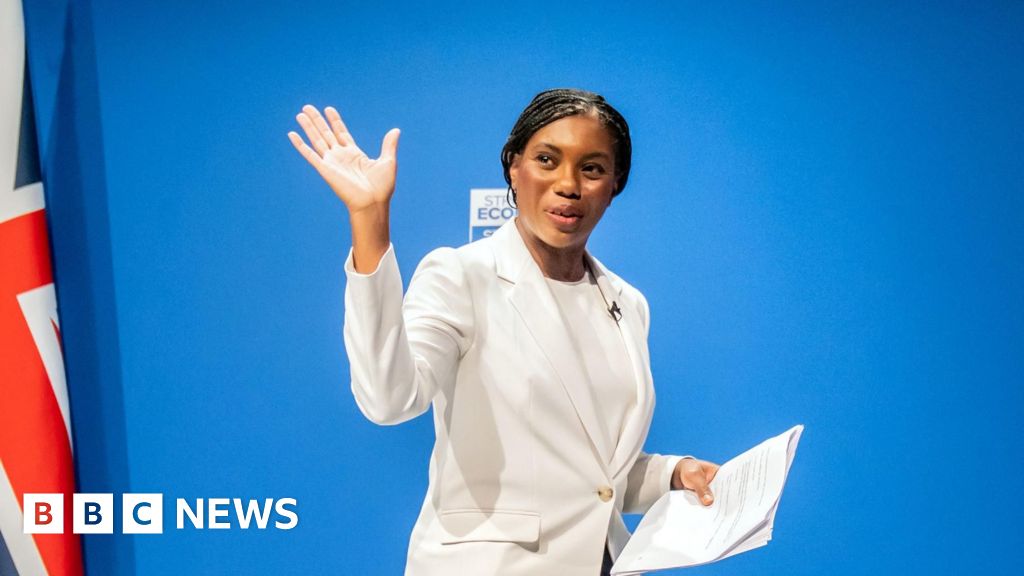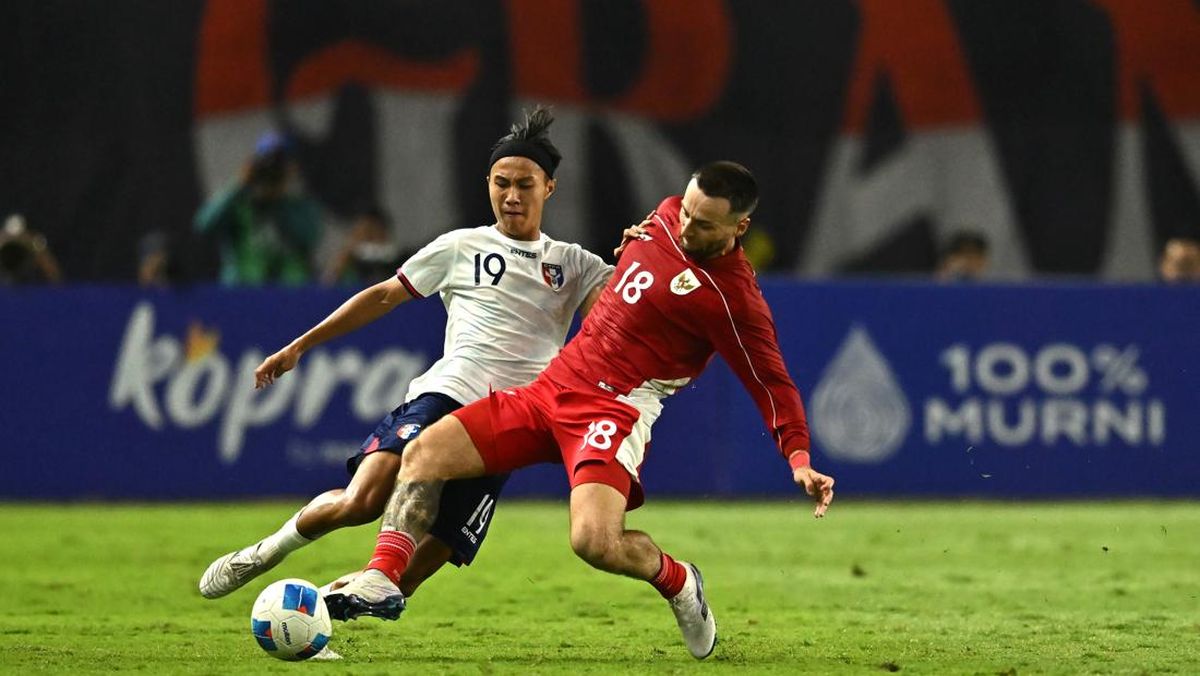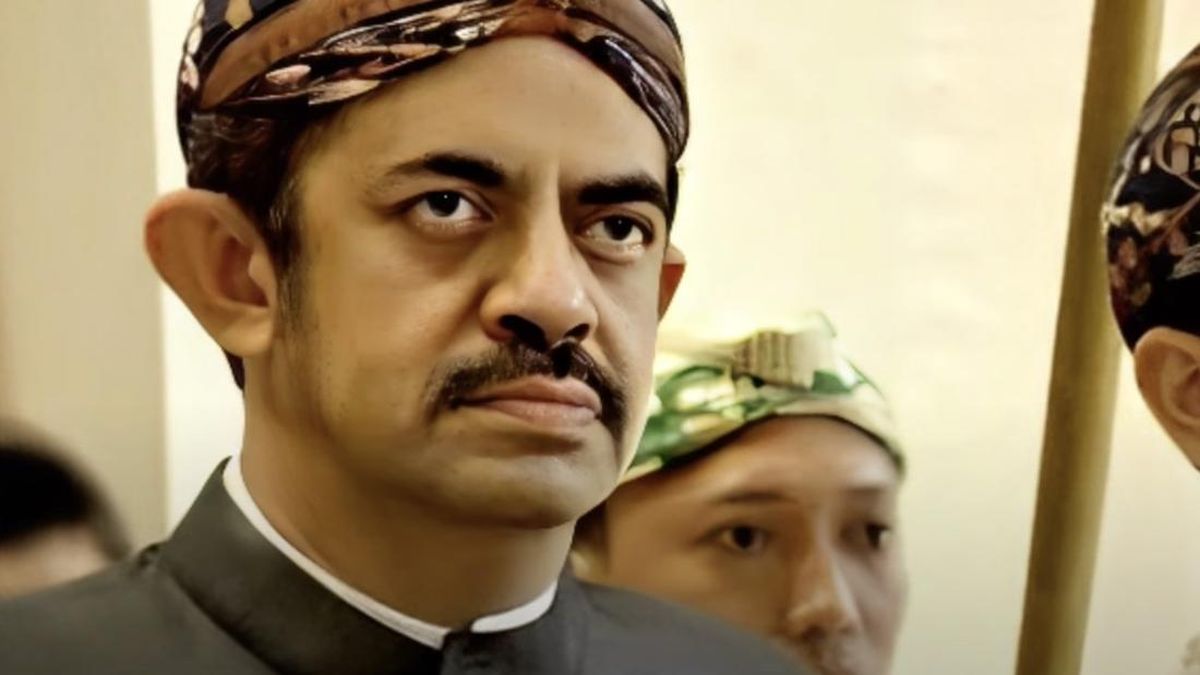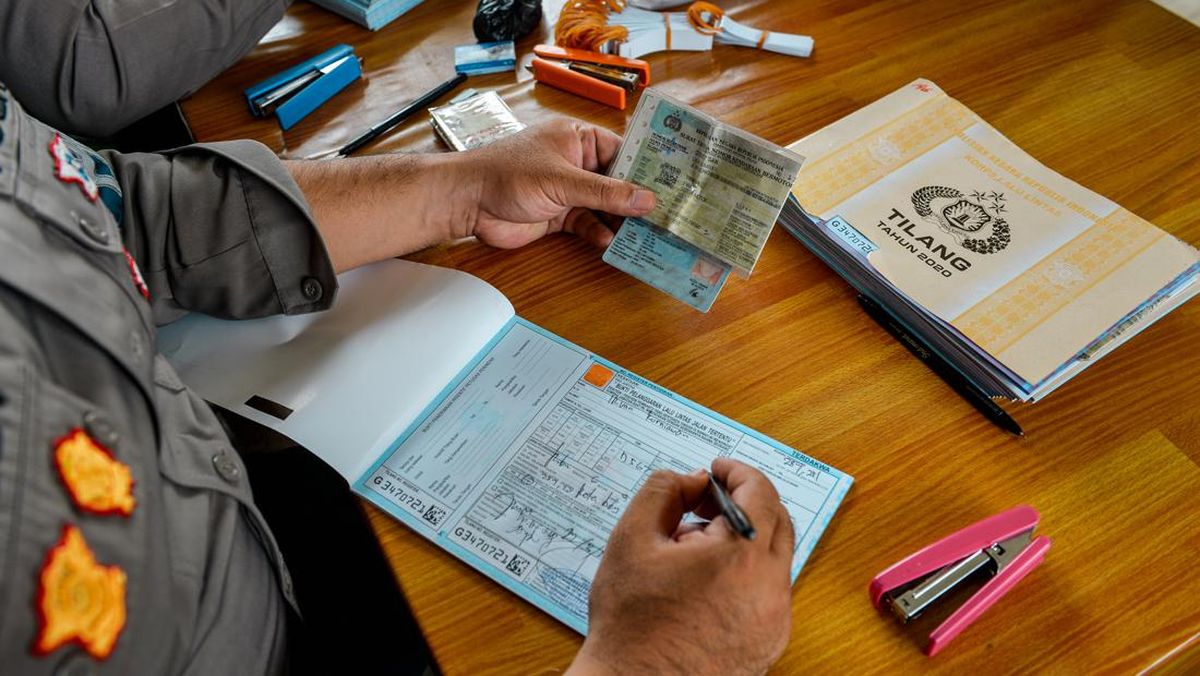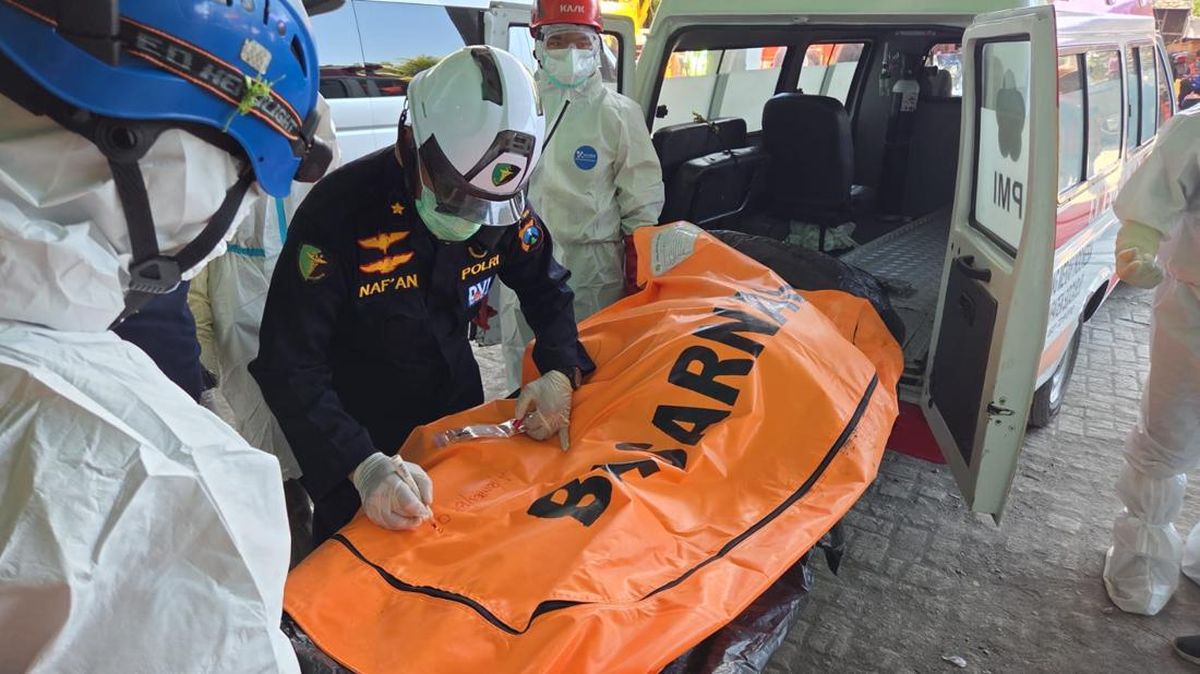If you've never before heard of the national vaccine court, you're hardly alone. It sits inconspicuously, a few hundred yards from the White House; and stands as a model of effective public policy, balancing the societal good of widespread vaccination with rare individual harm. Founded in the 1980s, the court has, with little fanfare, paid out billions of dollars to Americans who have claimed injury after getting a vaccine. Today, with vaccine skepticism rising and given voice in the highest ranks of government, we wondered: can this singular court block out the noise, withstand the political winds, and stay true to its mission?
Jacob Thompson is 13 years old. He loves airplanes, swimming and Chick-fil-A. But Jacob can speak only a handful of words and needs help walking more than a few yards.
Jacob was born in St. Louis on New Year's Eve, 2011, rounding out a family of four, with sister Meili and parents John and Huali — he, a pilot for FedEx; she, a recent immigrant from China.
John Thompson: We had this perfectly normal, happy little baby. He would be able to jump up and down on my wife's lap, and very alert, recognized who mom and dad was.
At his six-month checkup, Jacob received a combination shot that included the recommended childhood vaccinations against diphtheria, tetanus and pertussis, or DTaP, all deemed safe and effective in clinical trials.
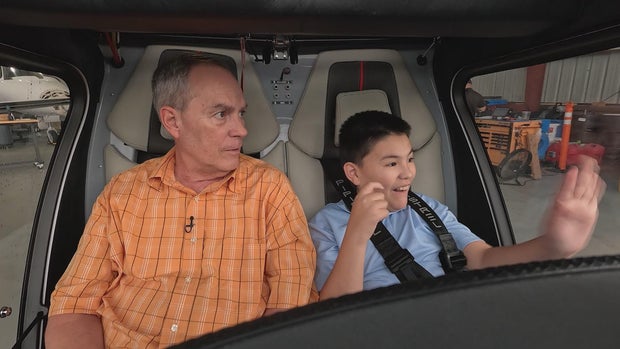 John and Jacob Thompson
60 Minutes
John and Jacob Thompson
60 Minutes
Hours later, Jacob began to seize. Doctors hoped it was a one-time reaction. It wasn't.
John Thompson: Within I'd say six months or less, he didn't know that we were mom and dad anymore, and he was slithering on the floor like a snake.
Jon Wertheim: Unrecognizable--
John Thompson: Un-- yeah.
Jon Wertheim: --from the child you knew?
John Thompson: Yeah.
By age two, Jacob could suffer up to 700 seizures in one day. He was diagnosed with a rare and severe form of epilepsy.
The Thompsons became increasingly convinced that his condition could be traced back to his six-month vaccinations. And, they began to seek accountability. They took their case to attorney Renée Gentry.
She's a leading vaccine injury litigator and director of the Vaccine Injury Litigation Clinic at George Washington University Law School in Washington, D.C.
Renée Gentry: I represent both vaccine-injured children and adults. All of my clients are vaccinated. Most of them will start the conversation by saying, "I'm not anti-vax."
Jon Wertheim: Why do you think they need to tell you right off the bat they're not anti-vax, but?
Renée Gentry: There's a lot of public pressure when you say that you have a vaccine injury, that people think you're some kind of a crazy person or you're out there. And also, because most people have never heard of a vaccine injury. They're rare.
So rare that, while hard to quantify precisely, the chances of serious vaccine injury have been likened to lottery odds, lightning strikes. Bear in mind, in total, global immunization has saved an estimated 154 million lives, six lives each minute.
But when an injury does occur, families can come to vaccine court, seen in this informational video.
Part of the National Vaccine Injury Compensation Program, the court was established in response to a public health scare in the 1980s.
When families of injured children went to civil court and successfully sued the manufacturers of the DTP vaccine, an older version of DTaP, it caused all but one of those drug companies to pull out of the market, resulting in vaccine shortages.
Congress acted, crafting a bipartisan bill that partially shielded drug manufacturers from liability so they would continue to develop life-saving vaccines.
And, at the same time, Congress acknowledged that vaccines can cause injury. As bill sponsor Sen. Ted Kennedy described, when children are, "...the victims of an appropriate and rational national policy, a compassionate Government will assist them in their hour of need."
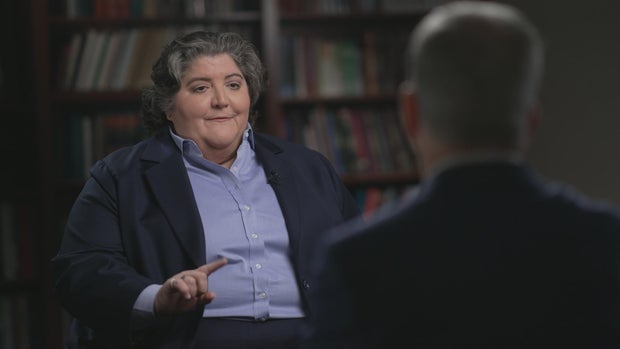 Renée Gentry
60 Minutes
Renée Gentry
60 Minutes
Renée Gentry: It was hailed as such a unique accomplishment back in the day because you had these disparate groups, you had the parents of vaccine-injured children together in the room with, with the manufacturers and everybody agreed that this was the best-case scenario.
Jon Wertheim: Is that fair to the public? They think they have an injury caused by a vaccine, but they can't sue the vaccine manufacturer directly?
Renée Gentry: You can still opt out of this program and sue a manufacturer. You have to just start in this program. But it's a lower burden of proof in our program. So it's an easier thing for vaccine-injured people to get compensation.
Drug companies are not only not being sued; they're not part of the proceedings. Vaccine court is a "no fault" court, meaning in cases like Jacob Thompson's, negligence does not need to be proven, just that the vaccine, more likely than not, caused the injury.
Vaccine court is not your typical court. There's no jury. Cases are decided in front of one of eight judges called special masters. Since the program began in the late '80s, 12,000 Americans have received almost $5 billion in payouts. There are no financial windfalls for lawyers — the court pays them by the hour. Where does all this money come from? A 75-cent tax, imposed on recommended childhood vaccines, goes into a trust fund earmarked for vaccine injury compensation.
In July the Thompsons received a judgment of $2.1 million based on the special master's ruling that it was more probable than not that Jacob's six-month vaccinations aggravated an underlying genetic mutation. Jacob also received a lifetime annuity to cover his future care.
Jon Wertheim: Is there any doubt that the vaccine caused Jacob's injury?
Renée Gentry: We can't ever prove scientific certainty on it.
Jon Wertheim: Does that not mean though that some cases are being compensated when in fact the science might not support it?
Renée Gentry: Sure. Sure. And that's what Congress intended. There's very clear indication that said it would be better to compensate somebody that wasn't injured than to miss somebody who was.
Jon Wertheim: How do you feel about that?
Renée Gentry: I think that's fine. While vaccines are critically important public health tools, they're not magic. You know, you can have an allergic reaction to aspirin. So it's a lot of different factors come into play to have a person be injured by a vaccine. Their genetics, their immune system. That's why the no-fault part is critical. The vaccine caused it. But there's no bad actor in this case.
The program is structured around a Vaccine Injury Table, basically, a conversion chart of vaccines and eligible injuries — if your child, for instance, got a rubella vaccine and developed chronic arthritis within seven and 42 days, you may be eligible for damages.
The most common compensation is for shoulder injuries suffered from a misplaced injection. You can file for an injury not on the table. Overall, half of all claims have been dismissed.
Today, vaccines on the table have jumped from the original six to 16, including the annual flu shot, though, notably not COVID. As for the eligible injuries, autism is not one of them.
That decision did not come easily, as retired special masters Denise Vowell and George Hastings explained.
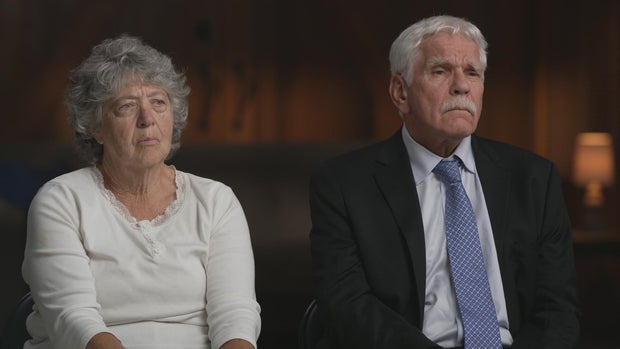 Denise Vowell and George Hastings
60 Minutes
Denise Vowell and George Hastings
60 Minutes
Jon Wertheim: There's been a lot of talk lately about a possible link between vaccines and autism. This has been litigated and decided in your court 15 years ago.
George Hastings: You know, I spent many, many years of my life, almost full-time looking at that issue.
In the early 2000s, cases alleging vaccinations caused autism flooded the court. Vowell, Hastings and a third special master oversaw what was a class action of sorts, a vaccine court proceeding that spanned almost a decade, incorporating testimony from dozens of medical experts and hundreds of scientific articles.
Jon Wertheim: What did you ultimately conclude?
Denise Vowell: Ultimately concluded there simply was not the evidence. I hoped there would be.
Jon Wertheim: Why?
Denise Vowell: Because the parents of children with autism go through so much.
But Vowell said she could not decide cases based on sentiment.
Denise Vowell: I had to apply the law. And the law was that if there is a preponderance of evidence of vaccine causation, I rule for them. If there isn't, I rule against them.
All three special masters concluded there was no link between vaccines and autism. On appeal, eight additional federal judges unanimously upheld the vaccine court decisions.
This has not been persuasive to Robert F. Kennedy, Jr.
We wanted to know RFK, Jr.'s views about vaccine court, a court his uncle championed, because today, as secretary of Health and Human Services,, he is imbued with the authority to add or redefine injuries on the vaccine table.
He declined our request for an on-camera interview but said via email that, yes, he would like to "expand the table," which he hopes will create an easier path to compensation. In particular, he wants to broaden definitions for "seizures and encephalopathy," two neurological conditions that can be associated with autism.
Although the original intent was "idealistic, compassionate, and sensible," the court, RFK, Jr. told us, has become "a disaster for the families of injured children. Its effective function is delay, denial, and systematic cruelty."
Vaccine court delays are something Ryan Farrell knows only too well.
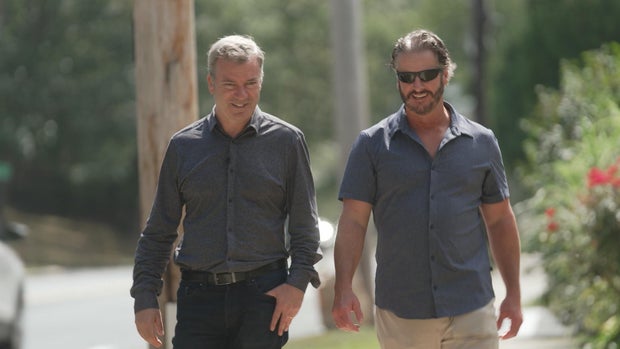 Jon Wertheim and Ryan Farrell
60 Minutes
Jon Wertheim and Ryan Farrell
60 Minutes
Husband to Angela and father of three, Ryan worked as a lineman for a Boston-area power company, hanging electrical wires 100 feet high.
On the job in 2017, Ryan cut his hand on rusty metal and got a tetanus shot. A few days later, the pain started.
Ryan Farrell: I felt like my-- my back was just, like, being stabbed.
Angela Farrell: He would take a shower, he was like, "I feel like there's razor blades hitting my skin."
Over the next few years, Ryan was hospitalized multiple times. Doctors diagnosed him with a rare autoimmune disease.
Ryan Farrell: I didn't wanna live for a long time, you know. That's how I felt.
Jon Wertheim: When did you make the link that "I had this vaccine. Maybe there's some correlation here?"
Angela Farrell: I made the correlation.
Like most Americans, Angela Farrell had never heard of vaccine court, but she stumbled upon it online and found a lawyer. They filed a case in 2019. And only in July, did the special master rule: the tetanus shot more likely than not led to Ryan's illness.
Jon Wertheim: Do you feel like you were treated with compassion?
Ryan Farrell: I mean the special master was kind to me and my family when we were in the courtroom.
Jon Wertheim: [The] court was intended to compensate people for vaccine injuries. I want to quote this, "quickly, easily, and with certainty and generosity."
Ryan Farrell: That couldn't be further from the truth. You know--
Jon Wertheim: What do you mean?
Ryan Farrell: I feel like they made it way too-- way too long.
Ryan remains unable to work. Six years in, the court has yet to determine his damages.
The court acknowledges the delays. Citing a backlog of more than 3,000 cases, its chief special master has, in documents obtained by 60 Minutes, asked Congress for more resources four years running, saying, "... it becomes more difficult each year to resolve the huge number of case filings in the expedient fashion they deserve." Congress has yet to act.
Our reporting suggests that this inaction is, in part, because vaccination has become such a loaded, heavily politicized issue that legislators are reluctant to wade in.
The Thompsons are not invested in the heavily-charged vaccine debate — they're invested in their son, Jacob — an anguishing exception, harmed by what's otherwise a public health force of good.
Jon Wertheim: I do wonder if people aren't going to hear your story and be terrified of giving their kids vaccinations.
John Thompson: We're definitely not anti-vaxxers. We think-- and-- I mean, vaccines are great. They've done a lot to help people. But I think that parents need to know what can happen.
Renée Gentry: If what you care about are vaccine-injured people, and them being compensated, then you want this court to work. And you want this court to be here.
Jon Wertheim: We have this program that incentivizes the manufacturing of vaccines, but also acknowledges that in some rare cases, there are injuries and damages.
Renée Gentry: Right. It's bipartisan. It takes everyone's views into account. And everybody compromises, which is a dirty word now. But that's the goal of it. And it's helped these people. Jacob will be taken care of for the rest of his life because of this program.
Produced by Denise Schrier Cetta. Associate producers, Elizabeth Germino and Arman Badrei. Broadcast associate, Mimi Lamarre. Edited by Warren Lustig.
L. Jon Wertheim is an accomplished journalist and 60 Minutes correspondent.


